If you’re wondering how acupuncture for sinus problems works, this article is definitely for you. Sinus problems are not fun. They often come with pain, congestion, and difficulty breathing. Fortunately, some treatments for this can help alleviate sinusitis and sinus allergies. Acupuncture is one such treatment.
What are Your Sinuses?
Behind your forehead, eyes, nose, and cheeks are four connected spaces in your skull called sinuses. Each sinus produces mucus that flows into your nose and keeps out dirt, bacteria, and other impurities. It’s common for obstructions from allergies or the common cold to occur, but these blockages can generally be resolved.
If you wish to try a more natural approach or experience recurrent sinus problems, acupuncture may help.
How Does Acupuncture for Sinus Problems Work?
How does acupuncture for sinus problems work?
Acupuncture is an ancient Chinese practice that involves inserting needles into your skin at specific points to relieve pain; these needles are said to stimulate the release of chemicals in your body and help relieve pain.
Qi is believed to maintain your body’s equilibrium and encourage its innate capacity for healing. Therefore, a blocked or interrupted qi flow might significantly impact your physical and emotional well-being. For example, people use acupuncture to help with various sinus issues, including headaches, pressure, pain, and nasal congestion.
Moreover, acupuncture for sinus problems works by unblocking the nasal passages and relieving congestion and pressure. It is believed that this can also help reduce inflammation and improve drainage.
Which Points Target the Sinuses?
Your body has a large number of acupuncture points. Before choosing which acupuncture sites to use, the therapist will record a complete description of your ailments if you try acupuncture.
Remember that not every professional uses the same marks and that some points have numerous functions. For example, the following acupuncture points are frequently used to treat sinus conditions:
- Bitong (EM7)
- Yingxiang (LI20)
- Hegu (LI4)
- Quchi (LI11)
- Juliao (ST3)
- Yangbai (GB14)
- Fenglong (ST40)
- Shangxing (GV23)
- Sibai (ST2)
- Zanzhu (BI2)
Who Can Benefit From Acupuncture for Their Sinus Issues?
Acupuncture is an increasingly popular treatment for various conditions, including sinus problems. But who can benefit from this type of therapy? Acupuncture is most effective for chronic sinusitis, defined as the sinuses’ inflammation lasting more than 12 weeks. This condition is often characterized by nasal congestion, facial pain, and headaches.
Additionally, some evidence suggests that acupuncture can also be helpful for those with acute sinusitis, which is a short-term inflammation of the sinuses. However, more research is needed in this area. In general, acupuncture is considered a safe treatment for most people. However, a few potential risks should be considered before undergoing therapy. These include:
- Bruising at the needle insertion site
- Dizziness
- Fainting
- Nausea
If you’re considering acupuncture for your sinus problems, be sure to consult with your doctor first to see if it’s right for you.
What to Expect From a Session?
Are you contemplating how acupuncture works to treat sinus allergies? First, the acupuncturist will insert the needles into the acupoint on your sphenopalatine ganglion. The sphenopalatine is a cluster of nerve cells located beneath your nose that relays sensory data from your mouth, throat, and nose. These are also autonomic nerves, which govern unconscious bodily processes like breathing. For example, your sphenopalatine ganglion controls nasal congestion.
Furthermore, a research study and meta-analysis found that acupuncture significantly reduces sinus allergy effects in patients who do not respond to conventional therapy. The study was published in the September 2020 Evidence-Based Complementary and Alternative Medicine issue.
Is it Safe to Try?
According to the National Center for Complementary and Integrative Health, acupuncture is primarily risk-free when carried out by a licensed and skilled acupuncturist. However, you risk experiencing adverse side effects if acupuncture isn’t done correctly or if the needles aren’t sterile. Receiving acupuncture from a qualified expert should reduce your chance of issues because certified acupuncturists in the United States are required to use single-use needles.
Whether You Have Sinusitis or Need Relief From Pain, Dr. Padro is Here For You!
If you are struggling with sinusitis or other sinus-related issues, consider booking an appointment with Dr. Rafael Padro at Mind & Soul Acupuncture at 305-456-1014 to improve your overall health and well-being and provide relief from specific symptoms.

